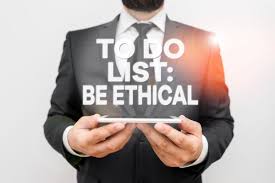The Importance of Ethics and Compliance to the Overall Corporate Mission (Part II of IV)

There are lots of sources for compliance guidance — prosecutors, regulators, compliance organizations, and many others have set forth important and valuable guidance for the design and implementation of an effective ethics and compliance program. All of this guidance is helpful and has advanced the cause of corporate compliance. After all, for decades now, the importance of corporate ethics and compliance has steadily grown.
It is important to remind each other about the goal of ethics and compliance — to prevent and detect future violations of the law, regulations and corporate policies, procedures and internal controls. This is a laudable goal, of course, and the compliance profession has met and will continue to meet this challenge.
A culture of ethics and compliance, I would argue, is a little bit more. It includes not only the detection and prevention of violations, but it extends to promoting a company’s business mission, a purpose, a set of values, and ultimately to the company’s definition of “success.” There are disagreements among practitioners, professionals and government officials as to the definition of “success,” meaning maximization of shareholder value, satisfaction of stakeholder interests, and even societal issues of importance.

Within this definitional disagreement, however, there can be no question that a company with a strong ethical culture and corporate mission will perform optimally because of employee engagement, productivity and commitment. Leaders of these organizations have to provide a strong commitment themselves by promoting a vision for success, a company mission and the importance of corporate culture to a shared accomplishment. In these organizations, leaders often adhere to principles that include mission-driven behaviors and the ability to respond to and validate employee concerns through empathy and action. Words are important to these leaders but it is the actions they take that demonstrate their understanding and commitment to employee concerns and morale.
A vibrant ethics and compliance function is an important — if not critical — function for every company, no matter the size, business and market. Some would say we are looking at a chicken and the egg issue — does ethics and compliance create or contribute to a strong corporate culture? Or does ethics and compliance reflect a company’s corporate culture? In my view, one cannot exist without the other, and they grow together or they sink together like any other interdependent set of functions.

In this analytical framework, it is easy to spot those companies that have the robust ethics and compliance function and those that do not. I recently wrote about the importance of acknowledging the role of ethics and compliance by ensuring that CCOs sit in the C-Suite, maintain an appropriate title, and are provided with the respect and responsibilities needed to execute an effective ethics and compliance program.
When it comes to ethics and compliance, CCOs and companies have to guard against complacency. Just as societal trends are quickly evolving, ethics and compliance has to respond in a similar fashion or the organization will suffer. Employees benefit immediately when they observe a robust ethics and compliance function that is accessible, embedded in the business, and responsive to employee needs and expectations. Those benefits can only be achieved when the organization itself commits to ethics and compliance as an essential business function.















